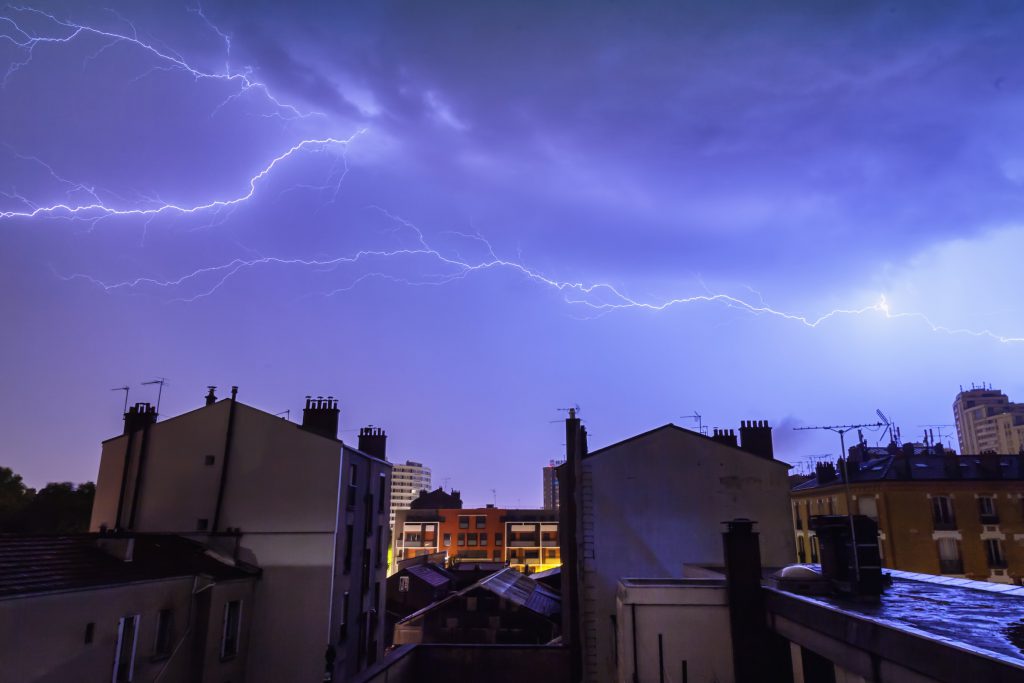Solar panels have become a popular choice for sustainable energy. But do they attract lightning? Let’s debunk the myths and understand the real risks.

1. Lightning attraction: Myth busted
First and foremost, your solar panels aren’t any more likely to attract lightning than other parts of your home. Lightning typically targets the highest point of a structure, which might not be where your panels are. Moreover, solar panels usually come with lightning arresters that activate and halt solar energy production if lightning strikes nearby, safeguarding the equipment.
2. The threat of voltage surges
While your panels aren’t lightning magnets, they aren’t entirely immune to storm-related damages. If lightning strikes within a 500-meter radius of your home, voltage surges can occur. These surges might harm the modules, inverter, cables, and other electrical components of your solar setup. To counteract this, grounding your solar installation is advisable.
3. Solar panels and firefighter interventions
Another crucial aspect to consider is that solar panels can pose challenges for firefighters during emergencies, especially if your roof is fully decked with panels. Planning alternative access points for firefighters, like skylights or side windows, is a wise move.
4. The significance of regular inspections
Routine checks of your solar installation are paramount. Ensure that panels remain clear of branches, leaves, and other potential fire hazards. Additionally, many experts recommend maintenance contracts paired with professional inspections to identify and address issues promptly.

 Open Immovlan
Open Immovlan